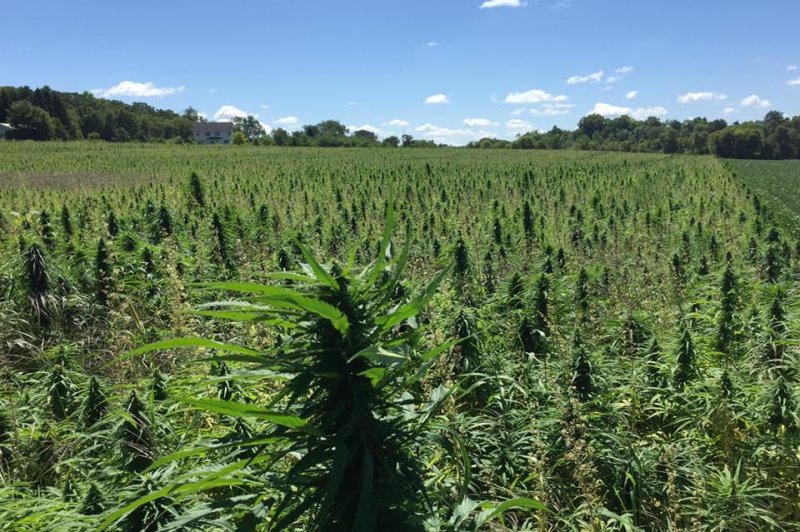1 of 2 | A field of hemp in Minnesota, where the plant grows well. Photo courtesy of Minnesota Hemp Farms
EVANSVILLE, Ind., Aug. 1 (UPI) -- This fall could mark the end of a federal ban of more than 80 years on industrial hemp farming in the United States.
The Senate's version of the 2018 Farm Bill includes an amendment that would legalize the production of hemp, which, because of its similarity to marijuana, is labeled a controlled substance. The House farm bill does not mention hemp, but the House and Senate are expected to meet this month to reconcile the differences in their bills.
"We're optimistic the 2018 Farm Bill will include hemp legalization," said Jonathan Miller, general counsel for the U.S. Hemp Roundtable, a coalition of hemp companies working to legalize hemp farming. "It is one of those very rare issues that sees bipartisan support, where Democrats and Republicans are working together to make it happen."
If that happens, the hemp industry could explode in the United States, Miller said.
America is the world's leading importer of hemp, partly because federal law prohibits U.S. farmers from growing it. It's used mostly in food products, and to make textiles. But if supplies were to increase, there are countless applications for the plant, Miller said.
"In Europe, so much of what was once plastic, they now use hemp," he said. "Car panelling is now made from hemp. They have hemp concrete. There are hundreds, if not thousands of applications for it."
This is hopeful news for many Midwestern farmers who are enduring substantial drops in their soybean prices due to the trade war with China.
"Hemp was once a leading cash crop in the United States," Miller said. "And it could be again."
As far back as the 17th century, hemp was a common agricultural product in America, Miller said. Many of the founding fathers grew hemp on their plantations, and several drafts of the nation's founding documents were written on hemp.
This trend continued until the early 20th century, when anti-marijuana sentiment swept the nation, culminating in a marijuana ban in 1937. Hemp is genetically similar to marijuana, and at the time it was difficult for scientists to tell the two plants apart. So hemp was included in the ban.
Farmers who once grew hemp switched to other crops. Some grew corn and soy. In Kentucky, many switched to tobacco, Miller said.
In the intervening years, scientists were able to show that hemp differs from marijuana in that it contains low levels of THC, the substance that makes a person "high."
Armed with that information -- and a quickly shrinking market for tobacco products -- farmers and politicians in Kentucky began pushing for hemp legalization about seven years ago, Miller said. Kentucky Sen. Mitch McConnell pushed for an amendment to the 2014 Farm Bill to allow states to develop pilot programs to study hemp farming.
Forty states adopted programs to allow farmers to grow hemp, and farmers across the nation jumped at the opportunity.
"It's going really well," said John Strohfus, CEO of Minnesota Hemp Farms. "It grows well here."
Strohfus and his fellow farmers are watching the progress of the 2018 Farm Bill closely.
"The United States is the number one hemp consuming country in the world, but there's still a lot of stigma about hemp," Strohfus said. "People don't understand what hemp is. Having it fully legalized would help get more consumer awareness, and that means more consumer demand."














